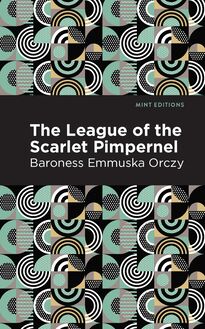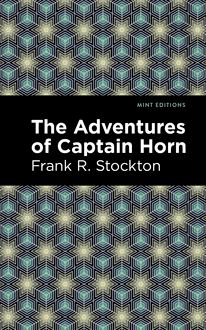-
 Univers
Univers
-
 Ebooks
Ebooks
-
 Livres audio
Livres audio
-
 Presse
Presse
-
 Podcasts
Podcasts
-
 BD
BD
-
 Documents
Documents
-
- Cours
- Révisions
- Ressources pédagogiques
- Sciences de l’éducation
- Manuels scolaires
- Langues
- Travaux de classe
- Annales de BEP
- Etudes supérieures
- Maternelle et primaire
- Fiches de lecture
- Orientation scolaire
- Méthodologie
- Corrigés de devoir
- Annales d’examens et concours
- Annales du bac
- Annales du brevet
- Rapports de stage
La lecture à portée de main
Vous pourrez modifier la taille du texte de cet ouvrage
Découvre YouScribe en t'inscrivant gratuitement
Je m'inscrisDécouvre YouScribe en t'inscrivant gratuitement
Je m'inscrisEn savoir plus
Vous pourrez modifier la taille du texte de cet ouvrage
En savoir plus

Description
Moonfleet (1898) is an adventure novel by J. Meade Falkner. Largely forgotten by today’s readers, Falkner was more widely known in his lifetime for his nonfiction works on history and topography as well as his role as chairman of a major arms manufacturer. Far from the amateur musings of a bored millionaire, Falkner’s writing shows a mastery of genre fiction while benefitting from his extensive geographical knowledge. Moonfleet has been adapted several times for radio, television, and film, most notably for Fritz Lang’s 1955 feature of the same name. “When I was a child I thought that this place was called Moonfleet, because on a still night, whether in summer, or in winter frosts, the moon shone very brightly on the lagoon; but learned afterwards that 'twas but short for 'Mohune-fleet', from the Mohunes, a great family who were once lords of all these parts.” Growing up in Moonfleet, young John Trenchard couldn’t help but hear the legends of the powerful Mohune family, whose ancestor Colonel Blackbeard is said to have stolen a diamond from King Charles I. An orphan, he is raised by his aunt, Miss Arnold, who tries to protect him from the violence and crime perpetuated by local smugglers. At church one Sunday, John hears noises from the crypt below and endeavors to return. The next day, he encounters two of his friends beside the church wall, and suspects they are searching for the ghost of Blackbeard. As he steps into a sinkhole in the graveyard, he finds himself in a tunnel leading to the crypt, where the telltale signs of smuggling reveal a shocking secret. With a beautifully designed cover and professionally typeset manuscript, this edition of J. Meade Falkner’s Moonfleet is a classic of English adventure fiction reimagined for modern readers.
Sujets
Informations
| Publié par | Mint Editions |
| Date de parution | 12 octobre 2021 |
| Nombre de lectures | 0 |
| EAN13 | 9781513287836 |
| Langue | English |
| Poids de l'ouvrage | 1 Mo |
Informations légales : prix de location à la page 0,0500€. Cette information est donnée uniquement à titre indicatif conformément à la législation en vigueur.
Extrait
Moonfleet
J. Meade Falkner
Moonfleet was first published in 1898.
This edition published by Mint Editions 2021.
ISBN 9781513282817 | E-ISBN 9781513287836
Published by Mint Editions®
minteditionbooks.com
Publishing Director: Jennifer Newens
Design & Production: Rachel Lopez Metzger
Project Manager: Micaela Clark
Typesetting: Westchester Publishing Services
We thought there was no more behind
But such a day tomorrow as today
And to be a boy eternal.
—Shakespeare
T O A LL M OHUNES
OF F LEET AND M OONFLEET
IN A GRO D ORCESTRENSI
L IVING OR D EAD
Says the Cap’n to the Crew,
We have slipped the Revenue,
I can see the cliffs of Dover on the lee:
Tip the signal to the Swan ,
And anchor broadside on,
And out with the kegs of Eau-de-Vie,
Says the Cap’n:
Out with the kegs of Eau-de-Vie.
Says the Lander to his men,
Get your grummets on the pin,
There’s a blue light burning out at sea.
The windward anchors creep,
And the Gauger’s fast asleep,
And the kegs are bobbing one, two, three,
Says the Lander:
The kegs are bobbing one, two, three.
But the bold Preventive man
Primes the powder in his pan
And cries to the Posse, Follow me.
We will take this smuggling gang,
And those that fight shall hang
Dingle dangle from the execution tree,
Says the Gauger:
Dingle dangle with the weary moon to see.
C ONTENTS 1. I N M OONFLEET V ILLAGE 2. T HE F LOODS 3. A D ISCOVERY 4. I N THE V AULT 5. T HE R ESCUE 6. A N A SSAULT 7. A N A UCTION 8. T HE L ANDING 9. A J UDGEMENT 10. T HE E SCAPE 11. T HE S EA- C AVE 12. A F UNERAL 13. A N I NTERVIEW 14. T HE W ELL- H OUSE 15. T HE W ELL 16. T HE J EWEL 17. A T Y MEGUEN 18. I N THE B AY 19. O N THE B EACH
Chapter 1
I N M OONFLEET V ILLAGE
So sleeps the pride of former days
—More
T he village of Moonfleet lies half a mile from the sea on the right or west bank of the Fleet stream. This rivulet, which is so narrow as it passes the houses that I have known a good jumper clear it without a pole, broadens out into salt marshes below the village, and loses itself at last in a lake of brackish water. The lake is good for nothing except sea-fowl, herons, and oysters, and forms such a place as they call in the Indies a lagoon; being shut off from the open Channel by a monstrous great beach or dike of pebbles, of which I shall speak more hereafter. When I was a child I thought that this place was called Moonfleet, because on a still night, whether in summer, or in winter frosts, the moon shone very brightly on the lagoon; but learned afterwards that ’twas but short for “Mohune-fleet,” from the Mohunes, a great family who were once lords of all these parts.
My name is John Trenchard, and I was fifteen years of age when this story begins. My father and mother had both been dead for years, and I boarded with my aunt, Miss Arnold, who was kind to me in her own fashion, but too strict and precise ever to make me love her.
I shall first speak of one evening in the fall of the year 1757. It must have been late in October, though I have forgotten the exact date, and I sat in the little front parlour reading after tea. My aunt had few books; a Bible, a Common Prayer, and some volumes of sermons are all that I can recollect now; but the Reverend Mr. Glennie, who taught us village children, had lent me a story-book, full of interest and adventure, called the Arabian Nights Entertainment . At last the light began to fail, and I was nothing loth to leave off reading for several reasons; as, first, the parlour was a chilly room with horse-hair chairs and sofa, and only a coloured-paper screen in the grate, for my aunt did not allow a fire till the first of November; second, there was a rank smell of molten tallow in the house, for my aunt was dipping winter candles on frames in the back kitchen; third, I had reached a part in the Arabian Nights which tightened my breath and made me wish to leave off reading for very anxiousness of expectation. It was that point in the story of the “Wonderful Lamp,” where the false uncle lets fall a stone that seals the mouth of the underground chamber; and immures the boy, Aladdin, in the darkness, because he would not give up the lamp till he stood safe on the surface again. This scene reminded me of one of those dreadful nightmares, where we dream we are shut in a little room, the walls of which are closing in upon us, and so impressed me that the memory of it served as a warning in an adventure that befell me later on. So I gave up reading and stepped out into the street. It was a poor street at best, though once, no doubt, it had been finer. Now, there were not two hundred souls in Moonfleet, and yet the houses that held them straggled sadly over half a mile, lying at intervals along either side of the road. Nothing was ever made new in the village; if a house wanted repair badly, it was pulled down, and so there were toothless gaps in the street, and overrun gardens with broken-down walls, and many of the houses that yet stood looked as though they could stand but little longer.
The sun had set; indeed, it was already so dusk that the lower or sea-end of the street was lost from sight. There was a little fog or smoke-wreath in the air, with an odour of burning weeds, and that first frosty feeling of the autumn that makes us think of glowing fires and the comfort of long winter evenings to come. All was very still, but I could hear the tapping of a hammer farther down the street, and walked to see what was doing, for we had no trades in Moonfleet save that of fishing. It was Ratsey the sexton at work in a shed which opened on the street, lettering a tombstone with a mallet and graver. He had been mason before he became fisherman, and was handy with his tools; so that if anyone wanted a headstone set up in the churchyard, he went to Ratsey to get it done. I lent over the half-door and watched him a minute, chipping away with the graver in a bad light from a lantern; then he looked up, and seeing me, said:
“Here, John, if you have nothing to do, come in and hold the lantern for me, ’tis but a half-hour’s job to get all finished.”
Ratsey was always kind to me, and had lent me a chisel many a time to make boats, so I stepped in and held the lantern watching him chink out the bits of Portland stone with a graver, and blinking the while when they came too near my eyes. The inscription stood complete, but he was putting the finishing touches to a little sea-piece carved at the top of the stone, which showed a schooner boarding a cutter. I thought it fine work at the time, but know now that it was rough enough; indeed, you may see it for yourself in Moonfleet churchyard to this day, and read the inscription too, though it is yellow with lichen, and not so plain as it was that night. This is how it runs:
S ACRED TO THE M EMORY OF D AVID B LOCK
Aged 15, who was killed by a shot fired from the Elector Schooner, 21 June 1757.
Of life bereft (by fell design),
I mingle with my fellow clay.
On God’s protection I recline
To save me in the Judgement Day.
There too must you, cruel man, appear,
Repent ere it be all too late;
Or else a dreadful sentence fear,
For God will sure revenge my fate.
The Reverend Mr. Glennie wrote the verses, and I knew them by heart, for he had given me a copy; indeed, the whole village had rung with the tale of David’s death, and it was yet in every mouth. He was only child to Elzevir Block, who kept the Why Not? inn at the bottom of the village, and was with the contrabandiers, when their ketch was boarded that June night by the Government schooner. People said that it was Magistrate Maskew of Moonfleet Manor who had put the Revenue men on the track, and anyway he was on board the Elector as she overhauled the ketch. There was some show of fighting when the vessels first came alongside of one another, and Maskew drew a pistol and fired it off in young David’s face, with only the two gunwales between them. In the afternoon of Midsummer’s Day the Elector brought the ketch into Moonfleet, and there was a posse of constables to march the smugglers off to Dorchester Jail. The prisoners trudged up through the village ironed two and two together, while people stood at their doors or followed them, the men greeting them with a kindly word, for we knew most of them as Ringstave and Monkbury men, and the women sorrowing for their wives. But they left David’s body in the ketch, so the boy paid dear for his night’s frolic.
“Ay, ’twas a cruel, cruel thing to fire on so young a lad,” Ratsey said, as he stepped back a pace to study the effect of a flag that he was chiselling on the Revenue schooner, “and trouble is likely to come to the other poor fellows taken, for Lawyer Empson says three of them will surely hang at next Assize. I recollect,” he went on, “thirty years ago, when there was a bit of a scuffle between the Royal Sophy and the Marnhull , they hanged four of the contrabandiers, and my old father caught his death of cold what with going to see the poor chaps turned off at Dorchester, and standing up to his knees in the river Frome to get a sight of them, for all the countryside was there, and such a press there was no place on land. There, that’s enough,” he said, turning again to the gravestone. “On Monday I’ll line the ports in black, and get a brush of red to pick out the flag; and now, my son, you’ve helped with the lantern, so come down to the Why Not? and there I’ll have a word with Elzevir, who sadly needs the talk of kindly friends to cheer him, and we’ll find you a glass of Hollands to keep out autumn chills.”
I was but a lad, and thought it a vast honour to be asked to the Why Not?—for did not such an invitation raise me at once to the dignity of manhood. Ah, sweet boyhood, how eager are we as boys to be quit of thee, with what regret do we look back on thee before our man’s race is half-way run! Yet was not my pleasure without alloy, for I feared even to think of
-
 Univers
Univers
-
 Ebooks
Ebooks
-
 Livres audio
Livres audio
-
 Presse
Presse
-
 Podcasts
Podcasts
-
 BD
BD
-
 Documents
Documents
-
Jeunesse
-
Littérature
-
Ressources professionnelles
-
Santé et bien-être
-
Savoirs
-
Education
-
Loisirs et hobbies
-
Art, musique et cinéma
-
Actualité et débat de société
-
Jeunesse
-
Littérature
-
Ressources professionnelles
-
Santé et bien-être
-
Savoirs
-
Education
-
Loisirs et hobbies
-
Art, musique et cinéma
-
Actualité et débat de société
-
Actualités
-
Lifestyle
-
Presse jeunesse
-
Presse professionnelle
-
Pratique
-
Presse sportive
-
Presse internationale
-
Culture & Médias
-
Action et Aventures
-
Science-fiction et Fantasy
-
Société
-
Jeunesse
-
Littérature
-
Ressources professionnelles
-
Santé et bien-être
-
Savoirs
-
Education
-
Loisirs et hobbies
-
Art, musique et cinéma
-
Actualité et débat de société
- Cours
- Révisions
- Ressources pédagogiques
- Sciences de l’éducation
- Manuels scolaires
- Langues
- Travaux de classe
- Annales de BEP
- Etudes supérieures
- Maternelle et primaire
- Fiches de lecture
- Orientation scolaire
- Méthodologie
- Corrigés de devoir
- Annales d’examens et concours
- Annales du bac
- Annales du brevet
- Rapports de stage




















